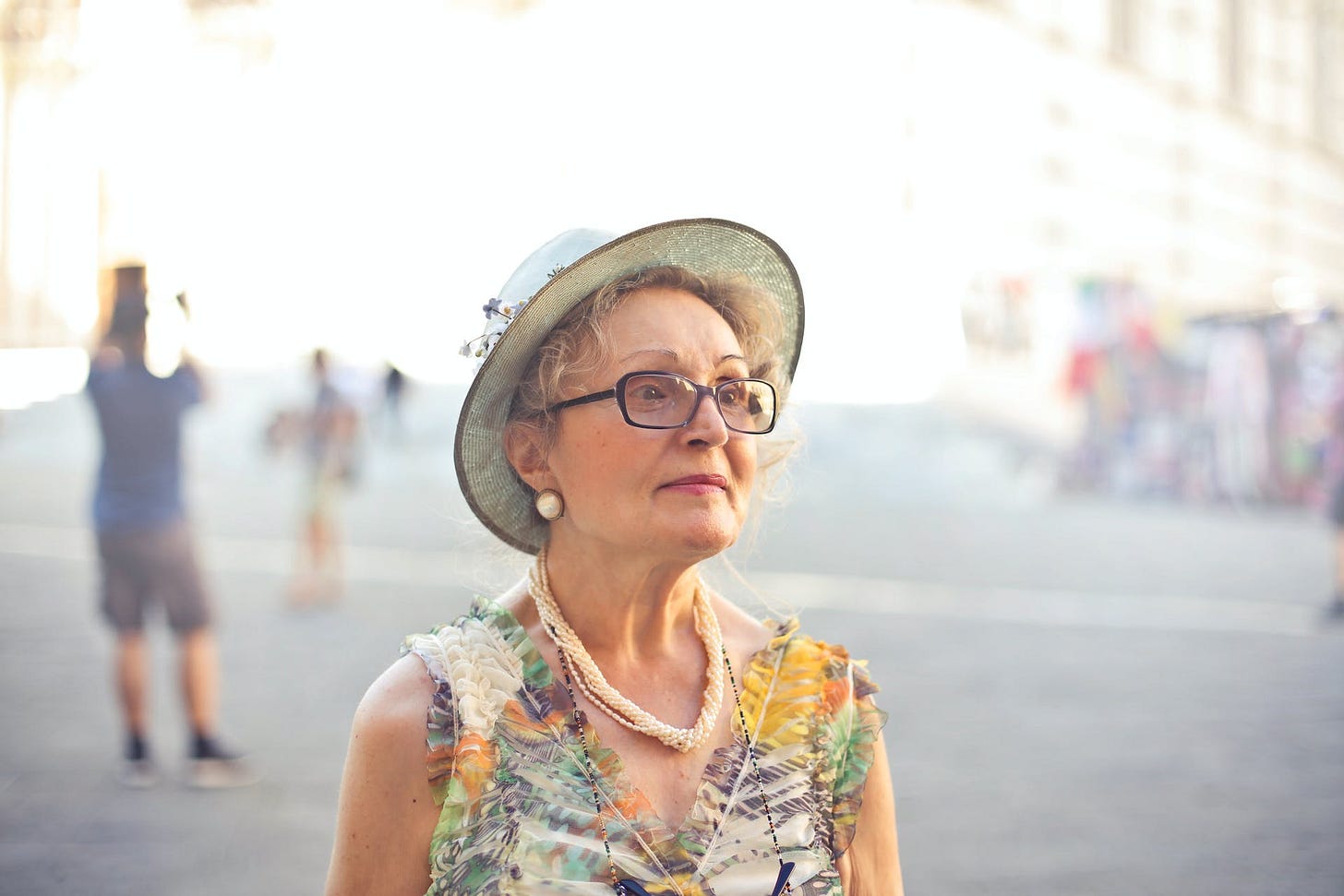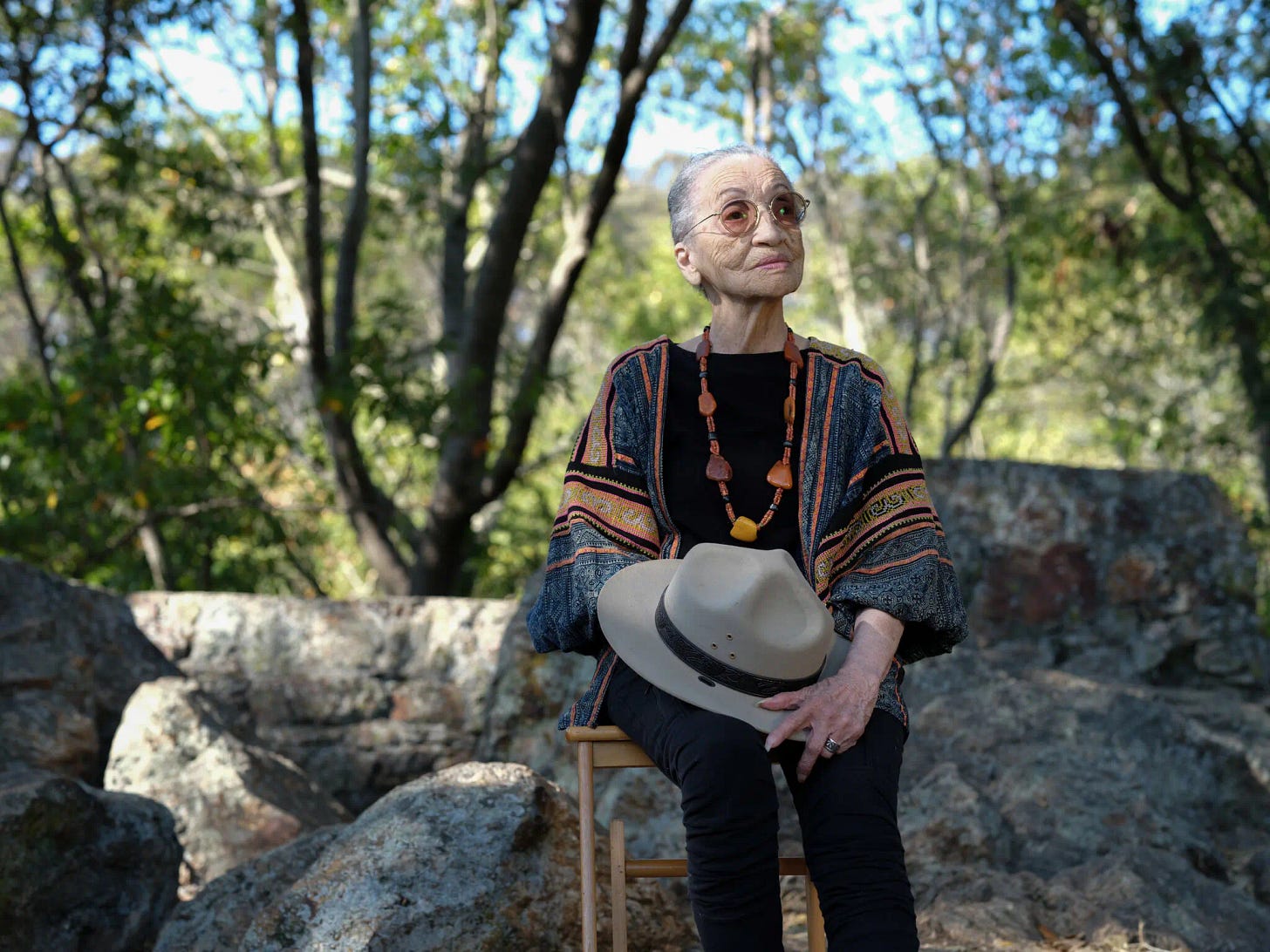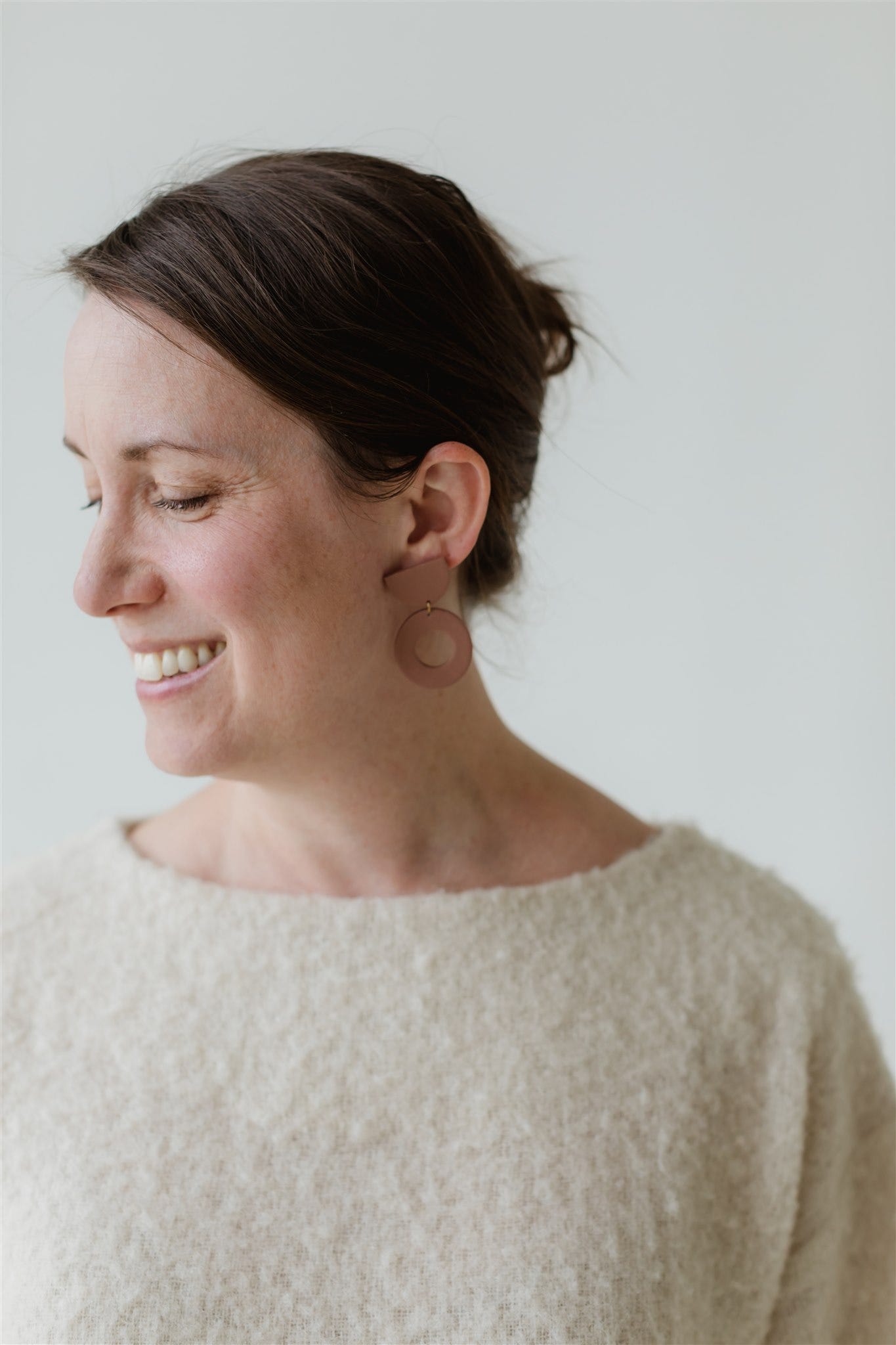On aging and style
Why do we think that older people can't have personal style? And why is an "old lady brand" a bad thing?

My family is odd in its own way (is there any family that isn’t?). My mom is Jewish, the daughter of a doctor, and grew up upper middle class in Los Angeles. My father grew up in poverty in rural southern Alabama, one of 8 children, and was a good ol’ boy until he received his Marxist awakening. They met working for the same civil rights lawyer in the 70’s.
My dad’s mom was named Voncile. She was the daughter of a sharecropper. She lived in an immaculately kept mobile home. She ordered most of her clothes from the JCPenney or Sears catalogs, which I used to love flipping through when I visited. They were mostly polyester and floral and all her pants had elastic waists.
My mom’s mom was named Helen. We used to say she ate “like a bird”, which I now suspect was disordered eating. My mom has told me that she cared very much about playing the part of the “doctor’s wife”, but she also had her own career as an English teacher. She wore neatly tailored, classic clothes.
While I was prepping for my recent trip to Europe, I posted about my search for boots that I could walk around town all day in. As I described one pair in a video, I off-handedly said “this is an old lady brand” as a negative. A follower asked why categorizing something as old lady was a bad thing.
I hadn’t really ever thought about it, and I didn’t have a good answer. What *are* my beliefs around aging and what I wear? Why do I think of some brands or clothes as “old lady”? What makes something “old lady”?
A member asked “is it that ‘old lady’ clothes represent ‘giving up’ or not giving a f***, or is it more of a shift away from the male gaze and female competition through fashion?”
I started thinking about it constantly.
We discussed it in my group program. A member asked “is it that ‘old lady’ clothes represent ‘giving up’ or not giving a f***, or is it more of a shift away from the male gaze and female competition through fashion?”
I asked my Instagram followers:
“At some point my grandmothers both stopped purchasing new clothes. So ‘old lady’ = dated to me.”
“Unstylish, boring, unflattering”
“Looser clothes that cover more skin”
“Talbot’s. Chico’s. Land’s End. Boring. Capri pants.”
I thought I’d see what the conventional advice out there was for a woman of a certain age.
First of all, dress to look younger, but not too young, because then you’ll be “mutton dressed as lamb”.
Stay current with trends but not too much.
Black can age you.
Multiple articles I read online said that you shouldn’t wear fleeces as you age (WTAF).
Define your waist.
Elongate your legs.
Don’t show your arms.
Wear form fitting clothes, but not too tight.
Wear thicker fabrics to cover lumps and bumps.
Basically, don’t show the shape of your body at all unless it conforms to the beauty standard (seeJessica DeFino).
AKA you’re damned if you do, damned if you don’t.
Why do we think that older people can’t have personal style (although there are exceptions — mostly thin ones — to the rule)? Is it because of antiquated modesty standards? Is it because we as a society see it as offensive for someone in that phase of life to act like they are still vibrant sexual beings? Is it pure ageism and a 20-something in Brooklyn could wear some of these “old lady” items and look cool (The Atlantic, paywalled), but if an older person wore them it’s seen as giving up? Are there some women who enjoy putting thought into what they wear and some that don’t, and the difference becomes more apparent as they age?
Or is it because we judge women all throughout their lives by the ideal beauty standard, and adding age into the equation just moves them further down the ladder? Are women at any age deemed unstylish because they’re in bigger bodies, have less money, don’t follow trends, or care more about comfort than outward appearances?

Remember my two grandmothers? My granny was in a larger body, had very little money, and lived in the country in southern Alabama. I would not have categorized her as stylish. My grandma was thin, had financial resources, lived in Los Angeles, and had more access to both clothes and information about what was current. I wrote about her being my first style icon in one of the earliest posts on my blog.
I don’t have a neat conclusion to this piece. All I can do is put these questions out there and hope we give them some thought.
This post is syndicated from Dacy’s amazing Substack, unflattering.
As a weight inclusive, anti-diet personal stylist, Dacy Gillespie helps her clients reject fashion rules and ideal standards of beauty imposed by the patriarchy, white supremacism, and capitalism so that they can uncover their authentic style. Through their work building a functional wardrobe, Dacy’s clients make a mindset shift from thinking they need to wear what’s flattering to unapologetically taking up space in the world.
After a lifetime of jobs in high-stress careers that didn’t suit her highly-sensitive, introverted personality, Dacy started mindful closet in 2013 in an attempt to create a more emotionally sustainable lifestyle. Her work has been featured in Forbes and Real Simple and she is a frequent podcast guest. Dacy is married and has two boys, ages 5 and 9.






Way to not wrap it all up neatly with a bow in a tidy conclusion. As a law professor, I often feel that if I've raised more questions than answers, I've done my job well. Your thoughtful and succinct summary of questions is insightful. Thank you.
Thanks for this thoughtful piece. For me, now in my 50s, it is about what I like and feel good in rather than what is “flattering” or trendy. Many times I feel invisible to young people, and there is a freedom in that. The pressure to conform to current fashions is considerably reduced.